Damascus counts the cost of reconstruction
21 June 2023
 MEED's July 2023 report on Syria also includes:
MEED's July 2023 report on Syria also includes:
> COMMENT: Syria comes in from the cold
> GOVERNMENT: Al-Assad edges closer to the mainstream
Away from the political uncertainty surrounding the rehabilitation of Damascus, the perennial question for Syria is where the funds for reconstruction are going to come from.
The cost of reconstruction in Syria has been estimated as ranging from $400bn to $1tn.
These are daunting figures for a country as economically debilitated as Syria. Where once this might have equalled several years’ worth of GDP, today it represents decades’ worth.
However, it is in the regional interest to get the Syrian economy running again. The neighbouring countries of Iraq, Lebanon and Jordan have all experienced reduced economic growth, stymied cross-border trade and refugee burdens as a result of the Syrian conflict.
Earthquake exacerbation
In 2023 so far, the situation has moved backwards, with major earthquakes centred on southern Turkiye having compounded the destruction caused by the 12-year conflict in Syria. The World Bank’s damage assessment suggests that the earthquakes could further contract Syria’s real GDP by 5.5 per cent in 2023 and complicate reconstruction efforts.
The physical damage caused by the earthquakes is estimated at $3.7bn, with indirect economic losses reaching $1.5bn. The destruction of infrastructure and disruptions to trade have caused further inflationary pressure due to the reduced availability of goods and increased transport costs.
The urgent near-term recovery and reconstruction requirement in Syria from the earthquakes alone is estimated at $7.9bn over three years.
Before the earthquakes, the affected areas were already home to almost 3 million internally displaced people. These vulnerable populations have now been subjected to additional pressures, with humanitarian agencies flagging the risk of disease due to damage to water and sanitation networks. Aleppo and its surrounding province have experienced the most significant damage.
While Syria’s readmittance to the Arab League could gradually restore financial flows into the country, any near-term funding is likely to be a trickle compared to the estimated $400bn-$1tn required for reconstruction.
Western nations are meanwhile maintaining their stance of not normalising relations with Syrian President Bashar al-Assad’s regime without significant progress towards a political solution, as outlined in UN Security Council resolution 2254. This includes the formation of a transitional governing body and the drafting of a new constitution.
Without a global rehabilitation of Al-Assad, the path to reconstruction is filled with obstacles.
International assistance
Regionally, countries are hoping to capitalise on Syria’s reintegration. Iran, as a longstanding supporter of Al-Assad’s government, is particularly keen to exploit emerging economic opportunities that would help it to bypass Western sanctions.
In May, Iran’s President Ebrahim Raisi flew to Syria – the first visit by an Iranian president in 13 years. During the trip, Raisi signed several agreements with Syria intending to position Iran as the primary provider of reconstruction projects in the country.
Additionally, plans are under way to establish a free trade zone between Iran, Iraq and Syria, with the possibility of further free zones at Latakia port and the Iraq-Syria border.
Al-Assad has emphasised the ongoing need for active Iranian involvement in Syria, both in ensuring the maintenance of security and in rebuilding war-affected areas.
The readmittance of Syria into the Arab League may in part be intended to ensure that Arab states have a place at the table in the rebuilding efforts and that Iran’s influence in Damascus is mediated.
Al-Assad also travelled to Moscow in March to meet Russian President Vladimir Putin to discuss the reconstruction of Syria. The leaders also discussed reconciliation with Turkiye – a necessity if Damascus is to secure the withdrawal of Turkish forces from Syrian territory.
Turkiye and Qatar have separately launched an initiative, without consultation with Damascus, to repatriate Syrian refugees to Turkish-occupied northern Syria by constructing housing. The project aims to provide homes for 1 million refugees over the next three years by building 240,000 houses in nine separate locations across the Idlib and Afrin regions.
The project is jointly backed by the Qatar Fund for Development and Turkiye’s Disaster & Emergency Management Authority.
Turkiye’s Interior Minister Suleyman Soylu said that the first phase of the project, which aims to deliver 5,000 units of the 28,681 homes within this year, was signed off in April 2023.
MEED's July 2023 report on the Levant region also includes:
JORDAN:
> COMMENT: Economic reform is Jordan’s priority
> ECONOMY: Jordan economy holds a steady course
> OIL & GAS: Jordan's oil and gas sector battles sluggish phase
> POWER & WATER: Jordan sustains utility infrastructure progress
> CONSTRUCTION: Hospital boost for Jordan construction
LEBANON:
> COMMENT: Power politics return to the fore in Lebanon
> GOVERNMENT: Political deadlock in Lebanon blocks reforms
> ECONOMY: No end in sight for Lebanon’s economic woes
SYRIA:
> COMMENT: Syria comes in from the cold
> GOVERNMENT: Al-Assad edges closer to the mainstream
> RECONSTRUCTION: Damascus counts the cost of reconstruction

Exclusive from Meed
-
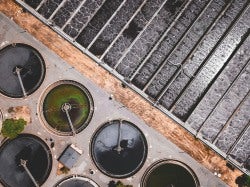 Dubai plans EPC tender for Warsan sewage treatment plant
Dubai plans EPC tender for Warsan sewage treatment plant25 February 2026
-
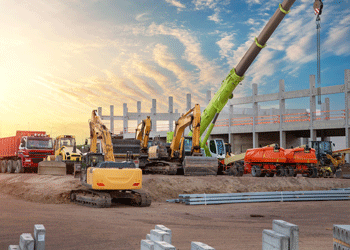 Aramco firm and Arcapita sign logistics facility deal
Aramco firm and Arcapita sign logistics facility deal25 February 2026
-
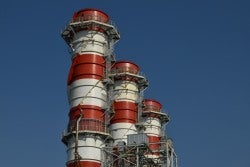 Algeria gives bidders more time for 1.2GW plant
Algeria gives bidders more time for 1.2GW plant25 February 2026
-
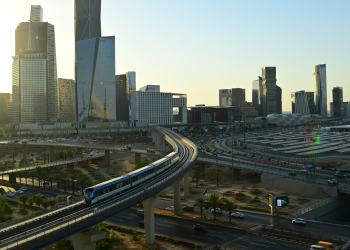 Riyadh tenders Line 7 metro project management deal
Riyadh tenders Line 7 metro project management deal25 February 2026
-
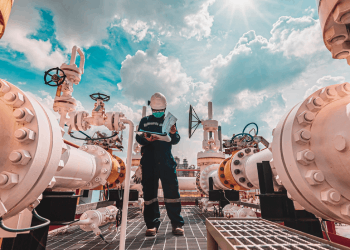 Six companies prequalify for Algeria gas contract
Six companies prequalify for Algeria gas contract25 February 2026
All of this is only 1% of what MEED.com has to offer
Subscribe now and unlock all the 153,671 articles on MEED.com
- All the latest news, data, and market intelligence across MENA at your fingerprints
- First-hand updates and inside information on projects, clients and competitors that matter to you
- 20 years' archive of information, data, and news for you to access at your convenience
- Strategize to succeed and minimise risks with timely analysis of current and future market trends

Related Articles
-
 Dubai plans EPC tender for Warsan sewage treatment plant
Dubai plans EPC tender for Warsan sewage treatment plant25 February 2026

Register for MEED’s 14-day trial access
Dubai Municipality is preparing to tender the main construction package for the Warsan sewage treatment plant (STP) by the end of the year, according to sources close to the project.
The scheme is linked to the deep sewerage tunnels infrastructure programme being implemented by the municipality’s sewerage and recycled water projects department.
As MEED understands, the Warsan STP had previously been expected to be procured as a public-private partnership (PPP) scheme.
However, sources confirmed that the main construction package will now be procured as an engineering, procurement and construction (EPC) contract.
The project involves the construction of a sewage treatment plant with a capacity of about 175,000 cubic metres a day (cm/d), including treatment units, sludge handling systems and associated infrastructure.
The plant, estimated to cost about $326m, will be developed at the existing Warsan complex, where the municipality is also progressing separate expansion and rehabilitation packages.
These include Warsan STP Phase 1 (DS-355/1), which involves sewerage and stormwater network upgrades, and Stage 2 of the Al-Warsan sewage treatment plant (DS-203/2), comprising new treatment units
Kuwait-headquartered Mohammed Abdulmohsin Al-Kharafi & Sons is the main EPC contractor for both projects.
Separately, the municipality is also progressing the expansion and upgrade of the first and second phases of the Jebel Ali STP.
The upgraded facility will be capable of treating an additional sewage flow of 100,000 cm/d.
Earlier this month, contractors were invited to prequalify for the contract.
The bid submission deadline is 2 April.
https://image.digitalinsightresearch.in/uploads/NewsArticle/15765751/main.jpg -
 Aramco firm and Arcapita sign logistics facility deal
Aramco firm and Arcapita sign logistics facility deal25 February 2026
Asmo, the logistics joint venture of Saudi Aramco and DHL Supply Chain, has signed an agreement with Bahrain‑headquartered Arcapita Group Holdings to deliver a 1.4-million-square-metre (sq m) built-to-suit logistics complex at King Salman Energy Park (Spark).
The project will feature a 43,000 sq m temperature-controlled, Grade A warehouse, more than 3,000 sq m of office and staff amenities, 5,300 sq m dedicated to chemical storage, and an open yard spanning about 1.2 million sq m.
Planned for large-scale industrial use, the site is expected to incorporate advanced warehouse and building management systems, end-to-end digital connectivity, automation and robotics.
It will also be developed in line with internationally recognised sustainability standards, featuring solar (photovoltaic) readiness, EV charging infrastructure and a target of LEED Gold certification.
The development is aimed at supporting the next stage of Saudi Arabia’s logistics and supply chain expansion.
Under the deal structure, Arcapita will provide funding and retain ownership of the asset, while Asmo will develop the facility and then lease and operate it under a 22-year occupational lease.
According to a statement, “the scheme will be executed via a forward-funding model, underscoring a long-term commitment to national infrastructure”.
Asmo added that this will be its first purpose-built logistics centre and one of four strategic locations planned to anchor its nationwide logistics network, aligned with the National Transport and Logistics Strategy (NTLS) under Saudi Vision 2030.
https://image.digitalinsightresearch.in/uploads/NewsArticle/15765085/main.gif -
 Algeria gives bidders more time for 1.2GW plant
Algeria gives bidders more time for 1.2GW plant25 February 2026
Algeria’s state-owned electricity and gas utility Sonelgaz has extended the bid submission deadline for a contract to build a 1,200MW combined-cycle gas-fired power plant in Adrar.
The project is being procured through Sonelgaz’s power generation subsidiary, Societe Algerienne de l’Electricite et du Gaz – Production de l’Electricite (SPE).
The new bid submission deadline is 29 April. The main contract was first tendered in April last year, and the deadline has been extended several times since.
The latest deadline was 26 February.
The tender is open to local and international companies with experience in delivering large-scale power generation projects and with sufficient technical and financial capacity.
Algeria’s wider power sector has experienced periods of limited contract activity in recent years. Between 2018 and 2022, virtually no new solar or wind farm contracts were awarded, according to available data from the regional projects tracker MEED Projects.
In 2023, Sonelgaz Energie Renouvelables, a subsidiary of Algeria’s state-owned utility, awarded 14 of the 15 solar photovoltaic (PV) packages it tendered that year.
At the time, MEED reported that the 15 packages had a total combined capacity of 2,000MW, requiring at least AD172bn ($1.2bn) of investment.
However, publicly available data suggests that progress has been slow with several schemes yet to reach full construction or commercial stages.
Gas-fired combined-cycle plants continue to account for the majority of Algeria’s electricity generation capacity. Data from MEED Projects indicates that more than 5,000MW of oil- and gas-fired power capacity is currently under construction.
Despite this, new contract awards in 2025 came from three solar schemes.
This included the construction of a 154MW solar PV plant in Bechar, for which China Power was appointed main contractor in August.
https://image.digitalinsightresearch.in/uploads/NewsArticle/15765079/main.jpg -
 Riyadh tenders Line 7 metro project management deal
Riyadh tenders Line 7 metro project management deal25 February 2026

Register for MEED’s 14-day trial access
The Royal Commission for Riyadh City (RCRC) has issued a tender inviting firms to bid for a contract for project management consultancy services for the construction of Riyadh Metro Line 7.
MEED understands that RCRC has allowed firms until March to submit their proposals.
The latest development follows contractors submitting bids on 31 January for a contract to design and build the project.
The project involves constructing a metro line linking the Qiddiya entertainment city development, King Abdullah International Gardens, King Salman Park, Misk City and Diriyah Gate. The total length of the line will be about 65 kilometres (km), of which 47km will be underground and 19km will be elevated.
The line will have 19 stations, 14 of which will be built underground and five above ground.
Riyadh Metro’s first phase features six lines with 84 stations. The RCRC completed the phased roll-out of the Riyadh Metro network when it started operating the Orange Line in January this year.
Construction has also begun on the next phase of Riyadh Metro, the extension of Line 2.
In July last year, MEED exclusively reported that RCRC had awarded an estimated $800m-$900m contract for the project.
The contract was awarded to the Arriyadh New Mobility Consortium, led by Italy’s Webuild.
The group also includes India’s Larsen & Toubro, Saudi Arabia’s Nesma & Partners and France’s Alstom.
Line 3, also known as the Orange Line, stretches from east to west, from Jeddah Road to the Second Eastern Ring Road, covering a total distance of 41km.
The line spans 8.4km, of which 1.3km is elevated and 7.1km is underground. It includes five stations – two elevated and three underground.
It will run from the current terminus of Line 2 at King Saud University (KSU) and continue to new stations at KSU Medical City, KSU West, Diriyah East and Diriyah Central – where it will interchange with the planned Line 7 – before terminating at Diriyah South.
https://image.digitalinsightresearch.in/uploads/NewsArticle/15764750/main.png -
 Six companies prequalify for Algeria gas contract
Six companies prequalify for Algeria gas contract25 February 2026
Register for MEED’s 14-day trial access
Six companies have prequalified for a contract that is part of a project to connect the liquefied natural gas (LNG) storage and loading lines of the gas complexes known as GL1Z and GL2Z, according to a statement issued by Algeria’s state-owned oil and gas company Sonatrach.
The two complexes are part of Sonatrach’s Arzew LNG hub.
The scope of work for the contract is focused on the execution of the basic engineering study for the project.
The six companies that have prequalified for the project are:
- JGC (Japan)
- McDermott (US)
- Synergy Engineering (Indonesia)
- ExidaSP (UAE)
- EPPM (Tunisia)
- Enreco (Italy)
In its statement, Sonatrach said: “Following the review of applications, the companies … have been prequalified and will be invited to participate and submit bids in the selective consultation.”
The Arzew LNG hub is Algeria’s main LNG export centre, located near the port town of Arzew, about 40 kilometres east of Oran on the Mediterranean coast.
Sonatrach is currently implementing several projects to upgrade facilities within the hub.
In October last year, MEED revealed that the gas train known as T-300 had been brought back online at the site.
The train was brought back online after a new main cryogenic heat exchanger (MCHE) was commissioned.
The upgrade was part of a broader contract with US-based Honeywell to replace four MCHEs at GL1Z.
The contract was originally signed with Air Products, and Honeywell acquired the contract when it bought Air Products’ LNG process technology and equipment business in September 2024.
https://image.digitalinsightresearch.in/uploads/NewsArticle/15762638/main.png


